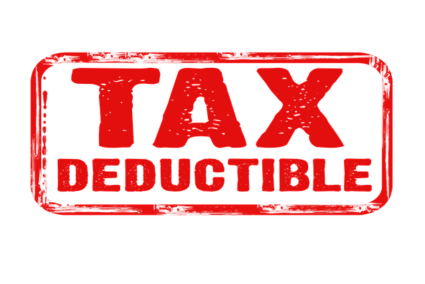Charitable giving can make good financial sense for retirees, both wealthy ones and those of more modest means. As retirees think about their charitable-giving strategies for 2021 and beyond, here are some key considerations. For Smaller Givers: Take Advantage of the Deduction Available for Nonitemizers. for Midsize Givers: Use Qualified Charitable Distributions. For Larger Givers: Donate Highly Appreciated Assets From Taxable Accounts. Click below for the full article.
Read moreYear: 2021
Nearly a decade ago, the State of California, under then-Attorney General Kamala Harris, began requiring nonprofits incorporated and/or registered in the state to submit Schedule B of IRS Form 990 along with its other required annual filings. Schedule B is a listing of donors giving more than $5,000 per year to a nonprofit. Under federal law, Schedule B is not subject to public disclosure, but the State of California’s law made the information contained in it public anyway. In a 6-3 vote, the US Supreme Court handed California a loss in what is considered a landmark case of lasting reach. The majority found that California’s donor disclosure requirement was unconstitutional, and violated First Amendment guarantees of free speech and free association. States will no longer have the ability to go on fishing expeditions, casting a wide net over donor activity in search of a violation. It's a victory for individual liberty and donor privacy. Click below for the full article.
Read moreMillions of employees are sifting through their workplace benefits before their employer’s open enrollment deadline. One of the biggest questions they will settle is whether to join their partner’s benefits plan or keep benefits separate. With rising inflation and pandemic-related health costs, couples should take a strategic approach to open enrollment this year to make sure their benefits square with their money goals, say financial planners. Some may find it pays to keep their benefits relatively separate from their partner’s, while others could save significantly by analyzing costs.
Read moreThe idea of making money on the side from owning a rental property can be very appealing, especially if you view the venture as a possible way to quit your day job eventually or subsidize your income when you retire. But becoming a landlord is not for the faint of heart. Nor is it guaranteed to be profitable right away. A lot goes into making it so over time. To see if you're cut out for the challenge, here are four questions to ask yourself before getting into the business (and it is a business) of being a landlord.
Read moreWhile matrimony is traditionally a joyous time, marriage and domestic partnership can affect taxes, retirement savings and financial planning goals. Remarriage situations present even more complex challenges, especially if a blended family is involved. Click below for a slide show of 10 important tax and financial planning questions related to marriage, divorce, remarriage and blended families according to ALM’s Tax Facts Online.
Read moreDespite surging covid cases and climbing inflation, Americans’ retirement account balances continue to rise to record levels. Others, though, are fighting to pay rent — unable even to think about investing for the future. Let’s look at the "haves" who are saving for retirement in workplace plans. Workers who continue to contribute to their plans were rewarded with significant increases in their account balances, according to Fidelity, the largest administrator of workplace retirement accounts. The average 401(k) balance increased to a high of $129,300 in the second quarter of 2021, up 24 percent from the same period a year ago. The number of workers with accounts of $1 million or more also increased to record levels.
Read moreAs you save for retirement, it’s beneficial to know how much to save and whether you’re on the right track. Everyone’s situation is different, of course, but there are some useful retirement benchmarks that can give you a sense of how you’re doing to reach your goals. What is a good retirement savings goal? Many financial institutions and experts have a few guidelines to help answer that question. Keep reading to learn a few of these guidelines and don't forget that hiring a good financial adviser could be useful, too!
Read moreGovernor Phil Murphy recently signed the Fiscal Year 2022 Appropriations Act into law, which included several provisions that will make college more affordable for some NJ taxpayers. The Act creates new tax deductions for households with income below $200,000, who will be able to deduct their first $10,000 in contributions to an NJBEST 529 savings plan, $10,000 in in-state tuition payments and $2,500 in NJCLASS student loan payments. Additionally, NJ taxpayers with annual income under $75,000 will get a matching contribution up to $750 for contributions into the NJ 529 plan. NJ is now among 35 states to offer a tax deduction for 529 contributions and among 15 states to offer a matching contribution. Also, NJ's Community College Opportunity Grant (CCOG) currently offers residents with income under $65,000 free tuition for two years at an in-state community college and the Act extends this benefit to a student’s 3rd and 4th year at a 4-yr in-state college.
Read moreA scholarship available to students who attend New Jersey colleges and contribute to the NJ 529 (NJBEST) was recently doubled from $1,500 to $3,000. To be eligible for the full scholarship, the NJBEST account must be open for at least 12 years and received at least $3,600 in contributions according to the new regulations approved by the state Higher Education Student Assistance Authority board. The scholarship is not available to students who attend an out-of-state college. Unlike other state scholarships, the NJBEST scholarship is not funded by taxpayers. - it is funded by the fees investors pay to maintain the NJBEST accounts. Under a law Gov. Phil Murphy signed last year, the scholarship is available in any term that a student enrolls at a NJ higher education institution — not just during a student’s freshman year.
Read moreIn mid-April I picked my 15-year-old daughter and her friend up from school and took them to Barnes & Noble. The friend found out that I “do stocks” for a living and immediately asked me about crypto. What cryptocurrency should I buy, she asked. I’ll tell you about the advice I gave her in a bit. But not long after I got three calls in one day from my wife’s side of the family—from my sister-in-law (a pharmacist) and my wife’s cousins (both are barbers). They were all asking me about crypto. Click below to keep reading.
Read moreWhen you think back on this spring, you may fondly recall a substantial deposit made to your bank account by the federal government (if you were eligible). Economic Impact Payments were a focal point of the American Rescue Plan Act (ARPA), signed into law in March, and the payments were even larger for parents with dependent children. Keep reading to find out 2 other ARPA provisions that can really benefit parents.
Read moreWe usually associate spring cleaning with clearing out old items in your house that are unnecessary to make room for the new. This is also an amazing time to take care of your financial house and clean out unnecessary expenses in your budget. Keep reading for a few tips to get started putting some expenses in the trash.
Read moreNew Jersey has implemented a new law mandating both for-profit and non-profit employers with 25+ employees provide a retirement plan for their employees. Instead of establishing a 401k, Simple IRA, or SEP IRA, employers can comply by participating in the new state-run plan, called The New Jersey Secure Choice program. The law was originally passed into law in 2019 with an effective date of March 2021 and an implementation deadline of Dec. 2021. Whether these dates gets extended due to the Covid-19 pandemic is uncertain so employers need to be prepared. Click below for more details.
Read moreThe $1.9 trillion Covid relief measure tweaked the child tax credit, earned income credit, and child and dependent care credit. The changes are mostly aimed at lower earners and only apply to tax season next year (for 2021 income). The pandemic aid law also lets households claim a Recovery Rebate Credit to collect any outstanding funds from stimulus checks. Here’s what taxpayers need to know.
Read moreShutdowns, layoffs and salary cuts brought on by the coronavirus pandemic have left millions of Americans searching for new sources of income. Those who’ve recently turned to gig work may be weeks away from a financial surprise in the form of unexpected tax bills and insurance coverage fine print.
Read moreIt is that time of year to consider making an IRA Contribution. You have until April 15, 2021 to make a contribution for 2020. You can also make your 2021 contribution at the same time.
Read moreTraditional IRAs and Roth IRAs both offer tax-advantaged growth of money. The contribution for both account types for 2021 is $6,000, or $7,000 if over age 50. Which is better depends on a few factors. Some people are simply not eligible to make a Roth IRA contribution. Other people may not be able to deduct a Traditional IRA contribution, making it a less attractive option. For those who have a choice, it mostly comes down to when you pay taxes on the money.
Read moreMany taxpayers expect charitable donations will be tax deductible, but this is only true for those who itemize deductions. The 2017 Tax Cuts and Jobs Act doubled the standard deduction and capped state and local tax deductions, so most taxpayers no longer itemize. In 2020, even taxpayers who claim the standard deduction may deduct up to $300 of charitable donations pursuant to the Cares Act.
Read moreAndrew Novick, The Investment Connection, has been chosen as one of New Jersey’s Five Star Wealth Managers for 2021. Five Star Professional partners with New Jersey Monthly magazine to recognize a select group of New Jersey-area wealth managers who provide quality services to their clients. Andrew Novick will be featured, along with other award winners, in a special section of the January issue.
Read more"As we emerge out of the shortest but deepest economic recession in modern history sparked by the coronavirus pandemic, we enter 2021 with investor optimism running high," said Bob Doll, CFA, senior portfolio manager and chief equity strategist at Nuveen. "The reopening of the economy combined with increasing consumer and business confidence should create a positive backdrop for equity markets in 2021, but the key question is how much of this good news has already been priced into the markets." For over 30 years, Bob Doll has published an annual set of 10 predictions for the equity markets, monetary policy, and global economy. Click below to see his predictions for the coming year.
Read more


















